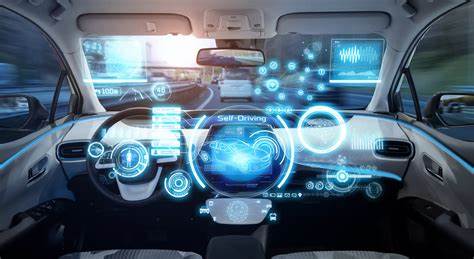
Eco-Friendly Features in Self-Driving Cars: Advancements for a Sustainable Future
Introduction
The topic of eco-friendly features in self-driving cars holds great relevance and importance in the context of environmental sustainability and transportation technology advancements. As the automotive industry evolves, it becomes crucial to consider the impact of transportation on the environment. By integrating eco-friendly features in self-driving cars, we can pave the way for a sustainable future.
Historical Background
Self-driving cars have steadily emerged in the automotive industry, revolutionizing the way we envision transportation. Over the years, significant advancements have been made to develop autonomous vehicles that can navigate roads without human intervention. However, the focus on eco-friendly features has been a more recent development. It is important to acknowledge any previous efforts or initiatives towards integrating eco-friendly features in self-driving cars to understand the progress made in this field.
Key Concepts and Definitions
To delve deeper into the topic, it is crucial to understand key terms and concepts related to eco-friendly features in self-driving cars. One important concept is the use of electric propulsion systems, which play a pivotal role in reducing carbon emissions. Energy-efficient designs, renewable energy integration, and sustainable materials and manufacturing processes are also important factors that contribute to the eco-friendliness of self-driving cars.
Main Discussion Points
Energy Efficiency in Self-Driving Cars
Self-driving cars have the potential to optimize energy consumption through AI algorithms and advanced sensors. These technologies enable efficient route planning, reducing unnecessary energy wastage. Additionally, regenerative braking and other energy recovery systems allow self-driving cars to recapture energy during braking, further enhancing energy efficiency. Comparing the energy efficiency of self-driving cars with conventional vehicles highlights the positive impact of autonomous driving technology on reducing energy consumption.
Electric Propulsion Systems
Electric propulsion systems are a key element in making self-driving cars eco-friendly. By utilizing electric motors instead of traditional combustion engines, self-driving cars significantly reduce carbon emissions. The benefits of electric propulsion systems extend beyond environmental impact, as they also contribute to noise reduction and smoother acceleration. However, it is important to consider the range and charging infrastructure for electric self-driving cars to ensure practicality and convenience for users.
Sustainable Materials and Manufacturing
Sustainable materials play a vital role in reducing the environmental impact of self-driving cars. Manufacturers are increasingly utilizing materials that are recyclable and have a lower carbon footprint. Furthermore, sustainable manufacturing processes, such as reducing waste and optimizing energy usage, contribute to the overall eco-friendliness of self-driving cars. A comparison of sustainability practices in the automotive industry emphasizes the importance of incorporating sustainable materials and manufacturing processes in the production of self-driving cars.
Case Studies or Examples
Tesla serves as a notable case study in the integration of eco-friendly features in self-driving cars. With their emphasis on electric propulsion systems and sustainable materials, Tesla has paved the way for other automakers to prioritize sustainability. Additionally, Waymo’s integration of renewable energy sources into their autonomous vehicle fleet showcases the potential for self-driving cars to operate using clean and renewable energy.
Current Trends or Developments
Recent trends in eco-friendly features for self-driving cars include the increased adoption of electric propulsion systems by major automakers. This shift reflects a growing commitment towards reducing carbon emissions in the automotive industry. Advances in battery technology are also driving longer ranges and faster charging times, addressing concerns regarding the practicality and convenience of electric self-driving cars. The integration of renewable energy sources for vehicle charging further strengthens the eco-friendliness of self-driving cars.
Challenges or Controversies
Despite the progress made, there are challenges and controversies associated with eco-friendly features in self-driving cars. The limited charging infrastructure for electric self-driving cars remains a significant hurdle that needs to be addressed. Additionally, concerns about the environmental impact of battery production and disposal highlight the need for sustainable practices throughout the lifecycle of self-driving cars. Striking a balance between energy efficiency and safety in self-driving cars is another important consideration that requires careful attention.
Future Outlook
Looking ahead, the future of eco-friendly features in self-driving cars holds immense potential. Further advancements in battery technology and charging infrastructure will increase the practicality and convenience of electric self-driving cars. Integration with smart grid systems will enable optimized energy usage, maximizing the eco-friendliness of autonomous vehicles. Potential regulatory changes may also play a crucial role in promoting and incentivizing the adoption of eco-friendly features in self-driving cars.
Conclusion
In summary, eco-friendly features in self-driving cars are essential for a sustainable future. By optimizing energy efficiency, incorporating electric propulsion systems, and embracing sustainable materials and manufacturing processes, self-driving cars can significantly reduce carbon emissions and environmental impact. However, challenges such as limited charging infrastructure and trade-offs between energy efficiency and safety must be addressed. With further advancements and regulatory support, eco-friendly self-driving cars can revolutionize transportation while preserving our planet.